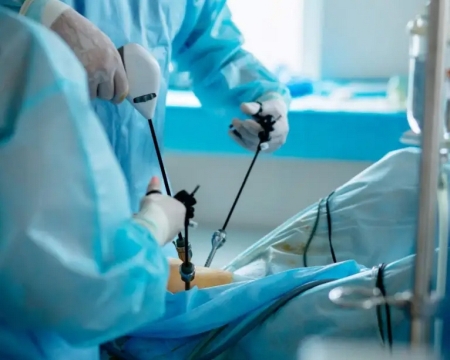
Our General Surgery and Lapascopy Treatments
Many common surgeries can be performed laparoscopically today. Whether you're a candidate for laparoscopic surgery will depend on how complicated your condition is. Some complicated conditions may require open surgery to manage. However, laparoscopic surgery is becoming the preferred default method for a growing list of common operations, due to its cost-saving benefits and improved patient outcomes. The list includes:
- Cyst, fibroid, stone, and polyp removals.
- Small tumor removals.
- Biopsies.
- Tubal ligation and reversal.
- Ectopic pregnancy removal.
- Endometriosis surgery.
- Urethral and vaginal reconstruction surgery.
- Orchiopexy (testicle correction surgery).
- Rectopexy (rectal prolapse repair).
- Hernia repair surgery.
- Esophageal anti-reflux surgery (fundoplication).
- Gastric bypass surgery.
- Cholecystectomy (gallbladder removal) for gallstones.
- Appendectomy (appendix removal) for appendicitis.
- Colectomy (bowel resection surgery).
- Abdominoperineal resection (rectum removal).
- Cystectomy (bladder removal).
- Prostatectomy (prostrate removal).
- Adrenalectomy (adrenal gland removal).
- Nephrectomy (kidney removal).
- Splenectomy (spleen removal).
- Radical nephroureterectomy (for transitional cell cancer).
- Whipple procedure (pancreaticoduodenectomy) for pancreatic cancer.
- Gastrectomy (stomach removal).
- Liver resection.
GMC Laparoscopic surgery is considered minimally invasive because the incisions are small and the organs aren’t exposed. Also, the kinds of operations that can be done laparoscopically tend to be less complicated ones.





